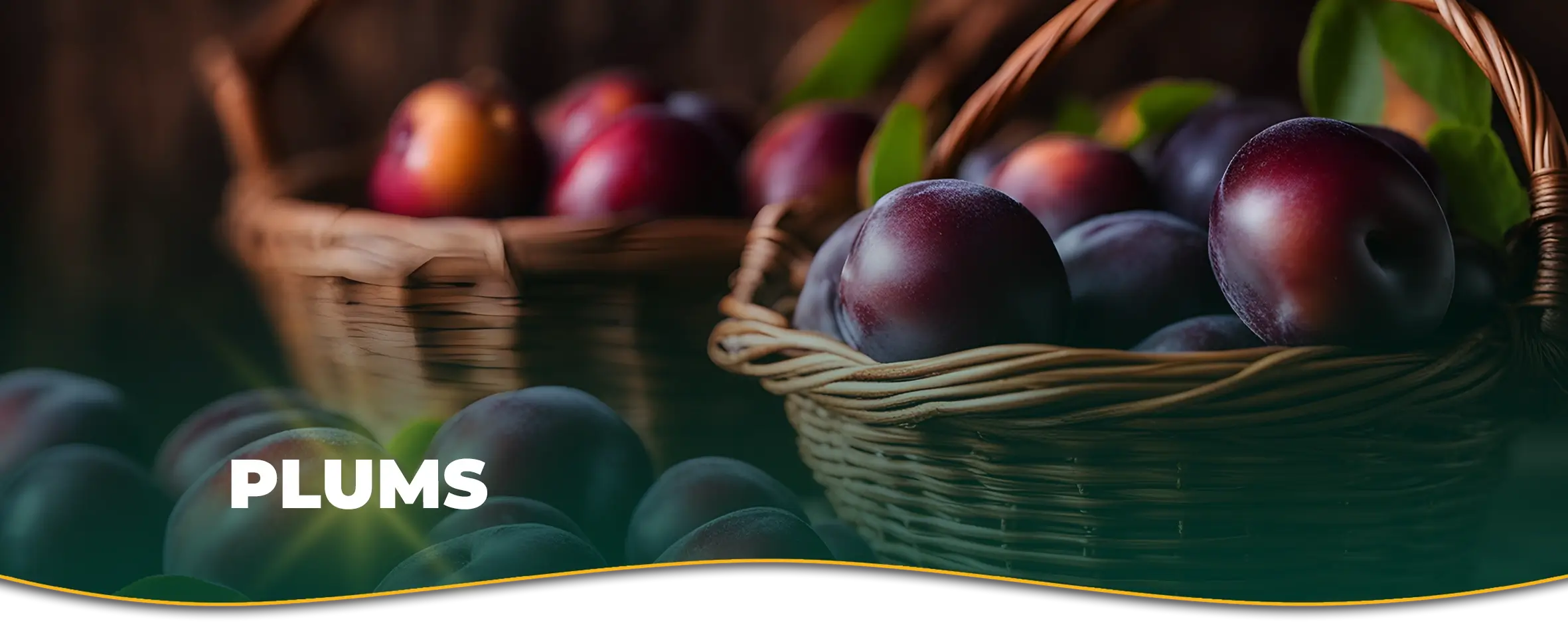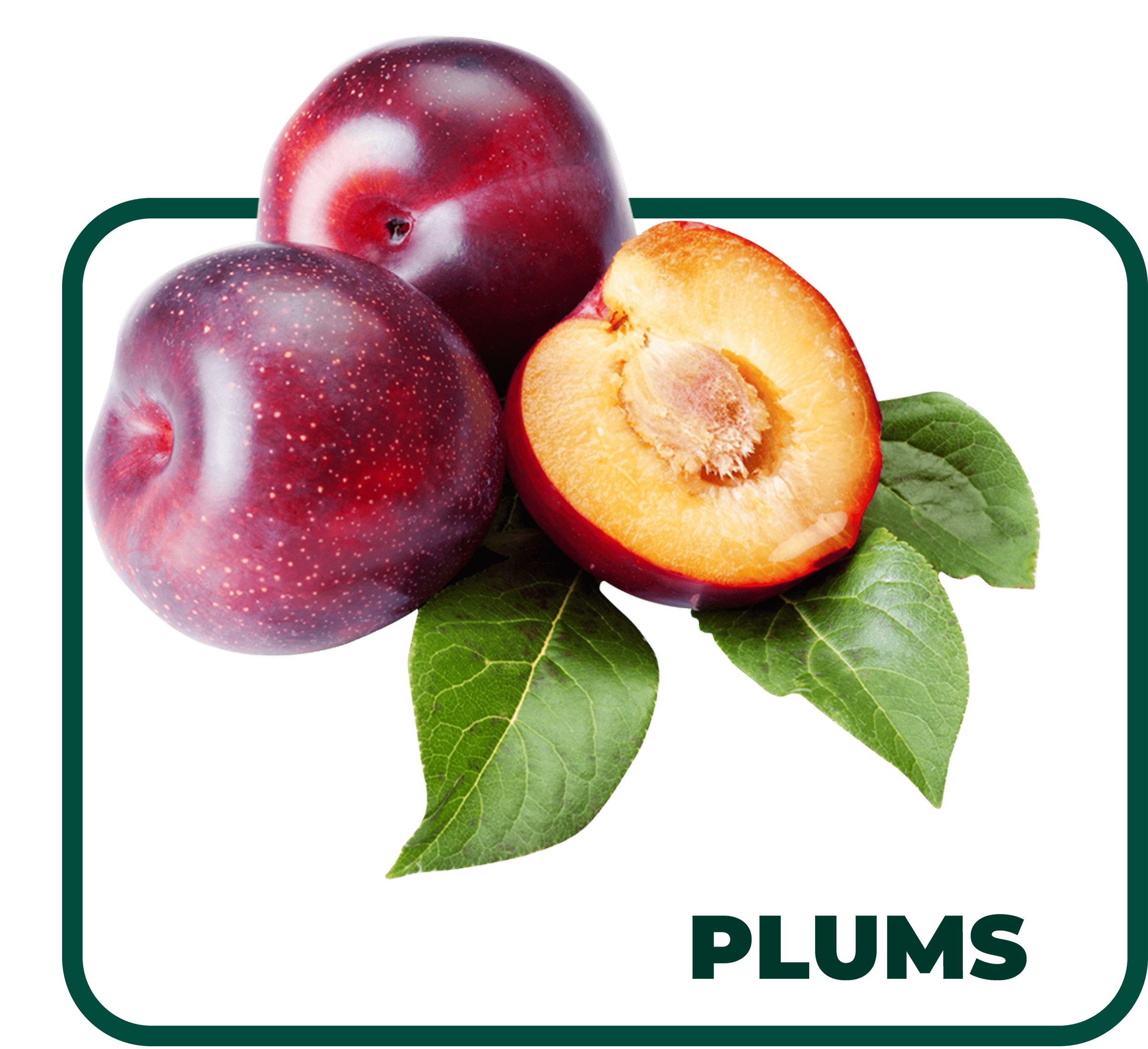
Plums
Egyptian plums, also known as Prunus domestica, are a variety of plums that have been cultivated in Egypt for centuries. They are typically small to medium-sized fruits with smooth skin that can range in color from yellow to deep purple. The flesh of Egyptian plums is juicy and sweet, with a slightly tart undertone. They have a central pit surrounded by soft, succulent fruit. This variety of plum is renowned for its rich flavor and aromatic qualities.

Plums have a natural sugar taste and are also packed with high-value nutrients. They are an excellent source of vitamins such as vitamin C, which is essential for the immune system and skin. Contains a high amount of vitamin K, which is essential for blood clotting and bone growth. Moreover, plums help in digestion and support stabilizing cholesterol levels. They have antioxidants like flavonoids and phenolic compounds that can help reduce oxidative stress and inflammation in the body.
Eating Egyptian plums can have several health benefits. The high vitamin C content supports the immune system, helps in the production of collagen for healthy skin, and enhances the absorption of iron from plant-based foods. The dietary fiber promotes digestive health, preventing constipation and aiding in weight management by making you feel full longer. The antioxidants present in plums help combat free radicals, reducing the risk of chronic diseases and promoting overall well-being. Plums are a good choice for those managing blood sugar levels.
Egyptian plums thrive in the warm, temperate climate of Egypt. They are typically planted in the fall or early spring when the temperatures are moderate. The trees prefer well-drained soil and a sunny location. Proper care, including regular watering and fertilizing, helps ensure healthy growth and fruit production.
The harvest season for Egyptian plums usually occurs in late summer to early autumn, depending on the local climate and specific variety. The harvest happens when they are completely ripe but also still firm. Overripe plums can become mushy and spoil quickly, so timing the harvest is crucial for optimal flavor and quality.
Egyptian plums are a delightful fruit with numerous health benefits and a rich cultural heritage in Egypt. Their cultivation requires careful attention, but the rewards are well worth the effort.
